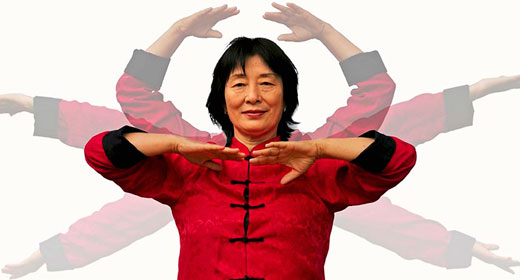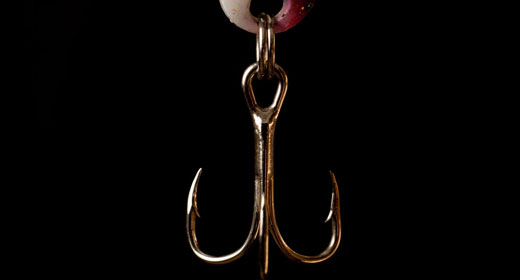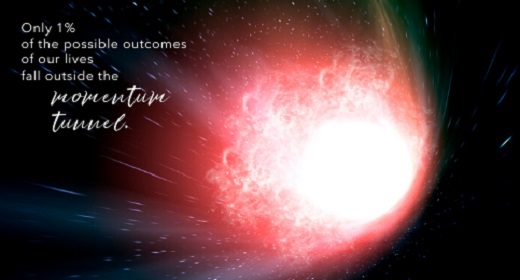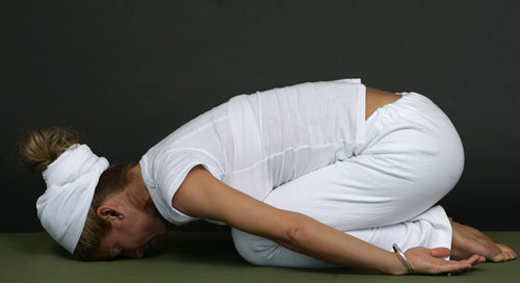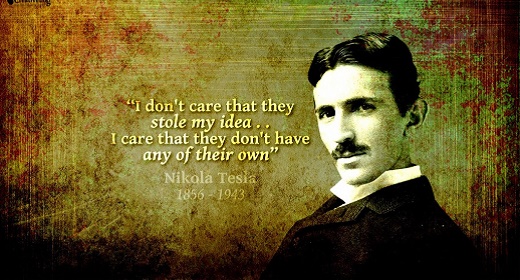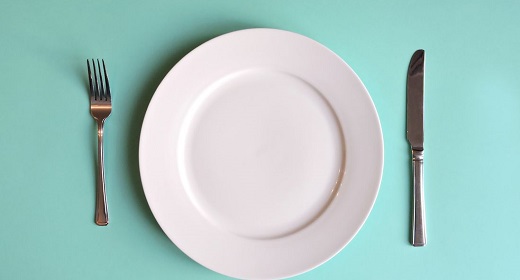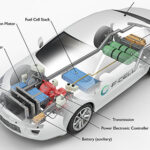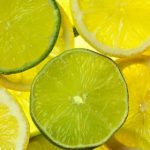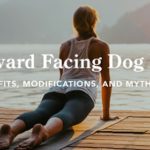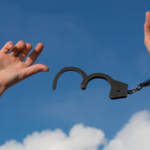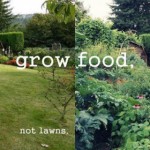Donna Quesada: If there was one single change… Is there one thing that’s more important than anything else between Eat Well, Move More, Stress Less, Love More?
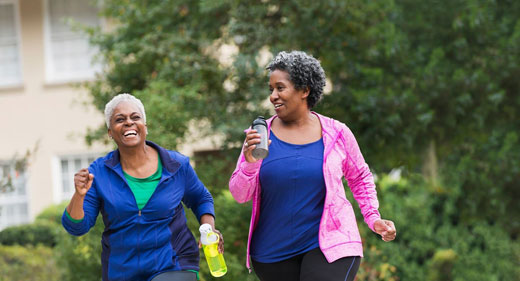
Dr. Dean Ornish: No.
DONNA: Is it maybe taking a step into a plant-based diet?
DEAN: I think it’s all of them. The paradox is that we’re taught that small and gradual changes of one thing are easier. But, I haven’t found that to be true. I’ve found that making big changes in all four… Eat Well, Move More, Stress Less, Love More, at the same time… for many people… it’s actually easier. We’ve found in many of our studies… the more you change, the more you improve. In every way we can measure, heart disease, telomeres, or whatever. But also, the more you change, the better you feel. And the worse you feel to begin with, the more dramatic the improvements are.
So, someone who has heart disease and can’t walk across the street without getting chest pain… or make love with their spouse… or go out with the kids without getting chest pain… And within a few days, or weeks at most… they can do all of those things and they are essentially pain free. Okay, when I do this, I feel good… when I do that, I don’t feel good. What I gain is so much more than I give up. I’ll do this because it’s worth it to me. I also talk about it in the new book… several patients… one of whom is a doctor himself… He’s in internal medicine and he had a massive heart attack to the point where his heart was pumping so badly, that he was told only a heart transplant could save his life.
And so, he went through our Reversing Heart Program in Los Angeles, to get in better shape for his heart transplant… when they would find a new heart for him. And after nine weeks, his heart had improved so much that he didn’t need a heart transplant anymore. So, people say, “Oh Dean, you have this radical program.” Wait a minute, what’s more radical here? A heart transplant, or Eat Well, Move More, Stress Less, Love More? If you are not trying to reverse a chronic disease…
The reason we were the first to prove you could reverse all these chronic diseases in a scientific way is because people didn’t go far enough. It takes a lot to reverse a chronic disease. If you are just trying to stay healthy or lose a few pounds or whatever… I wrote an earlier book called The Spectrum, which is based on the idea that the more you change, the more you improve. What matters most is your overall way of living. If you indulge yourself one day, it doesn’t mean you failed or cheated. These languages of behavioral medicine are moralistic, judgmental, even fascist quality. If you indulge yourself one day, it doesn’t mean you’ve failed or cheated! Just eat healthier the next. You don’t have time to exercise one day, do a little more the next. You don’t have time to meditate for an hour? Do it for a minute. There is a corresponding benefit in an ounce of prevention. But if you are actually trying to reverse a life-threatening condition, this is what it takes. And if you are willing to do it… to the degree you do it, most people find they feel so much better, so quickly, it makes it much easier to stay on it because what you gain is so much more than what you give up.
DONNA: What would be an example of a day’s diet?
DEAN: Well, in the Reversal Diet, in this new book, it’s a whole food plant-based diet. You know, I used to debate Dr. Atkins and Keto. There’s a diagram in the book that shows what happens to your arteries on these different diets. The whole foods plant-based diet… they are clean. Whether it’s your brain, or your heart, or your sexual organs… it’s flowing. On the standard American diet, which has the appropriate acronym of a SADdiet… they are partially clogged. But Atkins, Keto, Paleo diet… they are severely clogged, even if you lose weight. So, the goal is not just to lose weight, but do it in a way that enhances your health… not just mortgage it. So that’s what we found. So, a meal would be, fruits, vegetables, legumes and soy products.
DONNA: What about so-called “good fats?” Nuts and avocados? And of course, coconut products, which are so popular right now?
DEAN: Nuts and seeds, we include in small portions because they have a germative quality. They are life waiting to burst out. There is something beyond the fat that is there. Some of the other fats are not so healthy. Like, coconut is very high in saturated fat. What the Atkins and Ketogenic and Paleo people get right, and I debated Dr. Atkins many times before he died… is that most Americans eat too many refined carbs, sugar and white flour and white rice. And the diet I recommend is very low in those. But it’s what you replace them with. You don’t replace them with pork rinds and bacon and sausage. Those are not health foods. But fruits and vegetables and whole grains and legumes, in their natural forms, are rich in fiber. The fiber slows the rate of absorption. You don’t get these wide swings of blood sugar, like you do when you eat simple carbs, when you’ve removed the fiber, like white flour and white rice, and so on. But also, there are literally thousands of protective substances that have ant-cancer, anti-heart disease, and anti-aging properties. Where do you find them? You find them in fruits and vegetables, and whole grains, and legumes, and things like that.

So, a typical day might be a bowl of steel cut oatmeal, which has essentially no sugar, some soy milk, or some protein milk on there… I usually put a half pint of blueberries on there because besides being delicious, they have lots of things that improve your memory and cognitive function. And then, whatever you like to make. You can make food that is delicious and nutritious. The idea that if it tastes good, it can’t be good for you is not at all the case. One of the reasons for choosing organic if you can afford it, is not only does it taste better, but it doesn’t have the pesticide residue that can often disrupt your hormones—what are called “endocrine disrupters.”
DONNA: And so, then we have Move More.
DEAN: Before I forget… I’m sorry… The appendix at the end of the book has two weeks of frozen meals that we don’t have a financial relationship with. It’s just to show people that you can go out and eat these foods commercially. It’s not hard to do that. Even if you just go out to a nice restaurant. Even if it’s not on the menu. Ask the chef to make a vegetable plate with as little oil, and salt and butter as possible. And use the vegetables that seem freshest most delicious to the chef. They will bring something out. You don’t have to draw attention to yourself. It doesn’t have to be like When Harry Met Sally. You don’t have to draw attention. It doesn’t take very long. They bring out the food and it’s like, wow, that looks great, I didn’t see that on the menu. It looks better than what they were ordering.
DONNA: I’ve never have a problem on a plant-based diet, for over 20 years. There is something on every menu.
DEAN: So, you know.
DONNA: I do. And so, Move More. What type of exercise… Does it have to be cardiovascular?
DEAN: The best type of exercise is one you enjoy because if you like it, you will do it. So, the exercise is aerobic or cardiovascular, but that doesn’t have to be that intensive. Walking half an hour is good. If you can do more, it’s great. But try to do it consistently. Some strength training in there. Some resistance training and some stretching. All of them are good, but try to do a little every day. What I find, is that if I can incorporate exercise into my daily life, I’m much more likely to do it. So, a portable phone is a good thing. Then you can walk around your office when you are talking. There’s a new saying that “sitting is the new smoking.” There is some validity to that. Take the stairs. I used to get stressed out when I couldn’t find a parking place near the gym. That’s ridiculous. Let’s deliberately park farther away. I won’t stress when I can’t find a parking space. Make it part of my routine.
DONNA: When I was reading about your program… I love the way you include meditation and Yoga as part of it… It’s so holistic in that sense. I know we spoke about meditation earlier in the hour. I actually love the way you described meditation. I’m going to read your own words back to you, if you don’t mind. Meditation can give you the direct experience of that part of you that is undisturbed and not stressed, and it can also provide the mental clarity to notice what you are doing that is causing you to feel uneasy or diseased.
DEAN: Those are actually my wife’s beautiful words, but I certainly share them.
DONNA: We’d like to talk to her too. I hope she’ll join us for an interview one day. Would this be part of the Stress Less portion? Meditation and Yoga?
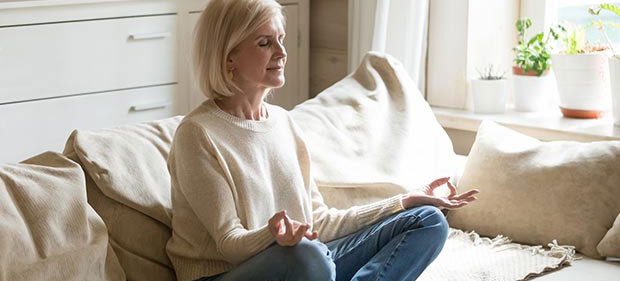
DEAN: Absolutely. Because not only does it help you deal with the stress in your life… People will often say things like, “I used to have a short fuse and explode easily, but now my fuse is longer. Things don’t bother me as much. It’s not like I have to hold it in and explode.” Everybody experiences when you are a little run down; day to day things are stressful. This is the opposite of that. A buffer for stress. But more than that… you quiet down your mind and body and experience an inner sense of peace and joy and wellbeing. That’s our natural state until we disturb it. So, then the question shifts from, “how can I get that?” to “how can I stop disturbing what’s already there?” which is very empowering. And then, if you take it even further, it gives you that double vision, that on one level we are separate but, on another level, we are part of something larger that connects us. It’s healing at its most profound.
DONNA: So, it’s not a lifestyle change, per say, it’s the perception of events that cause stress.
DEAN: That’s right. As I mentioned earlier, with the women who were taking care of kids with autism, it wasn’t an objective measure of stress. It was their ability to manage it more effectively. It’s really a function of perception. And these techniques are very powerful at reframing that in different ways, that are not so stressful. So that even if you can’t change the environment… you’ve got a kid with autism, but how we react to that. We have a lot more control than we realize. And it’s just not the meditation, but a sense of meaning and purpose that are also important. And my wife writes very beautifully about that.
It goes back to a book 50 or 60 years ago, that Victor Frankel wrote, called A Man’s Search for Meaning. He looked at concentration camp survivors after WWII, and he found that it wasn’t the strongest or the healthiest that survived. It was the ones who had the strongest sense of meaning and purpose. Two men are in the same bunker and one lived and one didn’t, and the one that lived wasn’t necessarily the heartiest or the strongest. It was the one who said, “I have to survive so that I can…” whatever. Bear witness, or be reunited with my loved ones, or whatever it happens to be. So, I’m in the habit when I work with patients… “Ok, you want me to change your life? Why do you want to do that?” “I want to live longer.” “Why do you want to do that?” No one has ever asked them that before. It’s like an assumption that everybody wants to live longer. But if you told me at 19 that I was going to live longer, I’d say, you don’t get it. I’m just trying to get through the day. I don’t know if I want to live longer. I’ve had patients say things like, “I don’t know if I want to live longer.” So, if you can get someone to think about that. “Gosh, I don’t want to live longer.” “I want to watch my kids grow up.” “I want to dance at their wedding.” “I want to be at their graduation.” My son just graduated high school a few days ago. For me, it was a very personal thing. I want to dance at their wedding. Whatever it happens to be.
DONNA: Having something to live for.
DEAN: That’s right. And you know, I think Nietzsche said, “He who has a why to live for can withstand any how. The sense of meaning and purpose is really integral to healing. And if you can help someone tap into that, then it activates all these healing responses in our bodies.
DONNA: And so, just to get practical for a minute. To drag this out a little bit… I teach at the local college and sometimes we do a few minutes of meditation. And I’ve had students say, “it doesn’t work.” “It makes me think more than usual.” And I say, “you’ve just never noticed before!” Our minds are busy like that. And sometimes getting still puts us in a situation where we realize how busy and distracted, we are by habit. And we look at that and we notice that for the first time. So, what do you say to people who say, “it’s just not for me” or, “I don’t know where to start?”
DEAN: There is a very common misunderstanding about what meditation is. People think meditation is sitting with your eyes closed and your mind is perfectly still. That’s not meditation. Everyone’s mind wanders. My spiritual teacher’s mind wanders. The Dalai Lama’s mind wanders. He’ll be the first to acknowledge that. His mind wanders less than mine does, but he’s been doing it a lot longer. The goal is not to keep your mind from wandering. The goal is to bring your mind back, over and over again. And there are certain sounds that have been found to be very peaceful throughout different cultures. They even sound alike. Like Omor Shalom… Salamor Amen. Even the word one. They start with and “o” or an “am” and end with an “m” or an “n.” Humming to a baby. We intuitively know that. So, pick a word. It could be secular or religious, it doesn’t matter. And then, you say that. And then you say that again. After a while. It could be a second, whatever. Suddenly you realize you are thinking about something else.
So instead of saying, “meditation is not for me” or, “I can’t do this…” “what’s the matter with me,” or another excuse to beat yourself up… Just gently but firmly… once you become aware of what you are thinking about… bring it back to the sound. Om. Over and over and over again. Someone might say, “I’m a really busy person. I’ve got 1000 things on my to do list. Why would I want to sit there and do nothing when I’ve got a million things to do? Well, you are not doing nothing. It’s a very active process. One study at Harvard was that meditation alone, changes gene expression in over three hundred genes. And there was a dose response effect. People who meditated for eight weeks and people who meditated for longer. And they found that those genes changed, the longer people were doing that.
So, it may look like you aren’t doing anything, but it’s a very active process. It makes your fuse longer. By practicing and focusing on a sound, you get better at concentrating. If you can concentrate energy, you can gain more power. Like focusing the sun’s rays on a piece of paper. Or, a laser is just coherent light. If all the wave forms are in step, you can burn through steel or bounce it off the moon. Our mind is no different. The power of the mind to affect the body is the greatest when it’s really focused. Unfortunately, it’s focused when we are angry or upset or scared. But we can redirect that into something that is not just neutral but healing… and it can be very powerful. It’s also… you have to eat, it’s just a question of what. And when you are out there exercising, it looks like you are really doing something. But with meditation it looks like you are not doing anything. It’s the easiest thing to skip. But all the Hatha Yoga and all of that… From the real teachers that I’ve studied with, it’s all just preparation, so you can sit still and meditate for longer periods of time because it’s so powerful.
DONNA: And so, even from that perspective, for those who might have resistance because they see it as “spiritual” and might not be comfortable with that angle… it can be approached from a purely therapeutic standpoint? Where it simply helps with stress and it helps us focus?
DEAN: It can be secular; it can be spiritual. It doesn’t matter. But what It does… It has these great benefits. It lowers your blood pressure. Your cholesterol will come down, independent of your diet. It can lower your blood sugar, independent of your diet. It helps with anxiety. It helps you perform at a higher level. The physical difference between elite athletes is negligible. It’s really a mental game, at that level. That’s why virtually all world class athletes use meditation and imagery… because it gives them a competitive advantage.
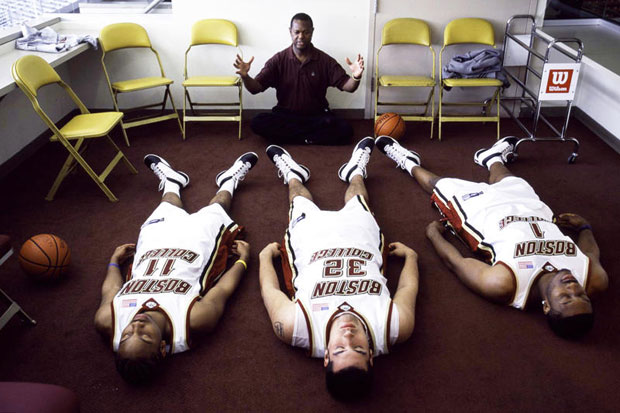
DONNA: Phil Jackson famously used it with the Lakers.
DEAN: That’s right. And the Bulls before that.
DONNA: So, Dr. Ornish,we’ve talked about Love More. I think we started there. Can I ask, what gets Dr. Ornish excited and motivated and inspired?
DEAN: Professionally, what gets me motivated, is service. Not in a martyr sense, but that’s what brings me the most joy and pleasure in my life. That’s what gets me out of bed every day. And right now, the idea of creating a new paradigm of health care. We are very grateful to Medicare and many insurance companies that are covering our program. We are getting bigger changes in lifestyle. Better clinical outcomes. Bigger cost savings and better adherence than anyone has ever shown. We are creating a new paradigm of health care at a time when it’s never been so badly needed. We spent 3.6 Trillion Dollars last year on health care. Mostly sick care. 86% of that is for treating chronic diseases that are largely preventable, or even reversible, by changing diet and lifestyle. And as we go into this presidential election, we can really make better care available for more people at lower cost… because we can free up trillions of dollars that we are using now for things that aren’t working so well. There’s a convergence of forces.
There are studies that stents and bypass surgeries really don’t work that well. They don’t prolong life, prevent heart attacks or even prevent chest pain. Half the population today, in the U.S.is diabetic or pre-diabetic. Getting your blood sugar down with drugs doesn’t prevent the horrible complications of blindness, and amputations, and impotence, and heart attacks, and stroke, nearly as well as getting it down with diet and lifestyle. In cases of men with early stage prostate cancer, only one out of 40 or 50 men actually benefit from surgery in terms of living longer. Most of those guys either end up impotent or incontinent or both. No benefit and huge economic and personal cost. We’ve found we can slow, stop or reverse it with lifestyle. So that’s part of what excites me is to create this paradigm. The other is a new study that I briefly mentioned earlier… is to see if we can reverse early stage Alzheimer’s. And there are no good drugs for treating it or for preventing it. My mom died of it. So, I have a personal interest in it. It runs in my family. I’m sure I have the gene for it; I need to get tested. When James Watson first deconstructed the first DNA, he was one of the first people to get his genome sequenced. He said, “I want to know everything but the Alzheimer’s gene because why would I want to know I have a disease that’s so horrible that I can’t do anything about?” And when you lose your memories, you lose everything. But I think we can actually do something about it. There are no good drugs for treating it or preventing it, but I’m cautiously optimistic that we may be able to make some progress through positive lifestyle changes. Because again, these are the same mechanisms that are at work. They’ve spent billions of dollars trying to make drugs to reverse Alzheimer’s and none of them have worked. So that’s really exciting for me to do this work. And spending time with my son and my daughter and my lovely wife and partner of 22 years. I have nothing but gratitude for my life. It has great meaning and pleasure for me.
DONNA: Well, you appear to be tireless. What does a typical day look like for you? Do you have a personal practice of your own?
DEAN: I try to get up an hour early. My nine-year-old girl gets up at 7. So, I get up at six. It’s the part of the day I can really own. I don’t have to worry. No one is going to call me at six. I can go downstairs. I can meditate. And what I lose in sleep, I more than make up with the meditation. So, it really doesn’t cost me that much. It’s a time that I can quiet down my mind. And when my mind is quiet… access that inner wisdom we all have and say, “what am I not paying attention to that I need to pay attention to?” And just listen. And it’s amazing what will come from that. Everyone can do that. My wife and I make breakfast for our kids… get them off to school. This morning I came… had a couple of interviews. I’m writing on a journal article I’m doing. I met with the Alzheimer’s patients. Met with a friend who has a food company. And then doing this podcast. Day is not over yet, it’s only 3:30! Hopefully I’ll go home and have some true love time with my true love. Life is good.
DONNA: Is there anything I didn’t ask that I should have?
DEAN: No, you’ve been a great interviewer and thank you for giving me the space to go on like this.
DONNA: Our pleasure. We’re happy to have you and have you share your wisdom with us.
DEAN: Awareness to me is always the first step in healing. We started with awakening and awareness. It’s really all part of the same thing. So, thank you for shining a bright light in the darkness… for giving me this opportunity, and hopefully to be of service that will be helpful and meaningful to people.
DONNA: Thank you Dr. Ornish. Thank you for your time and good luck with all your endeavors!
DEAN: Thank you. The book is Undo It and the website is Ornish.com. Everything on there is free and I hope it is useful. Thanks again.
DONNA: We’ll put that information under the interview.
DEAN: Thank you.
Read and Watch Part I Here: Awaken Interviews Dr. Dean Ornish #2 Pt 1 – Awareness Is the First Step of Healing
Read and Watch Part II Here: Awaken Interviews Dr. Dean Ornish #2 Pt II – Reversing Aging On A Cellular Level
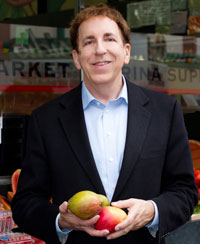 Dr. Dean Ornish, M.D., is the founder and president of the nonprofit Preventive Medicine Research Institute, clinical professor of medicine at the University of California, San Francisco, and the author of six books, all national bestsellers. He has received numerous honors, including the Outstanding Young Alumnus Award from the University of Texas, Austin, and the National Public Health Hero Award from the University of California, Berkeley. Dr. Ornish was recognized as a “TIME 100 Innovator;” by Life magazine as “one of the 50 most influential members of his generation;” by People magazine as “one of the most interesting people of the year;” and by Forbes magazine as “one of the world’s seven most powerful teachers.”
Dr. Dean Ornish, M.D., is the founder and president of the nonprofit Preventive Medicine Research Institute, clinical professor of medicine at the University of California, San Francisco, and the author of six books, all national bestsellers. He has received numerous honors, including the Outstanding Young Alumnus Award from the University of Texas, Austin, and the National Public Health Hero Award from the University of California, Berkeley. Dr. Ornish was recognized as a “TIME 100 Innovator;” by Life magazine as “one of the 50 most influential members of his generation;” by People magazine as “one of the most interesting people of the year;” and by Forbes magazine as “one of the world’s seven most powerful teachers.”

